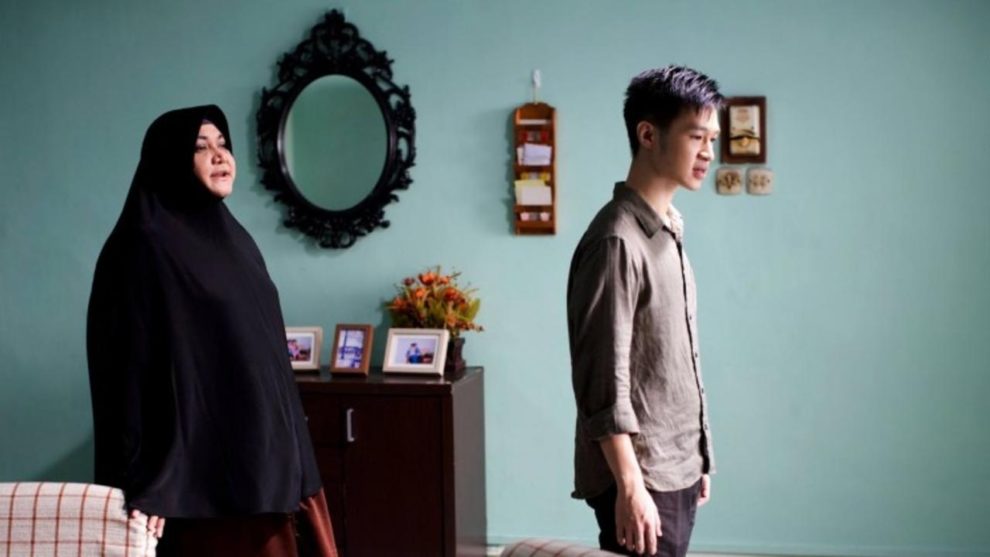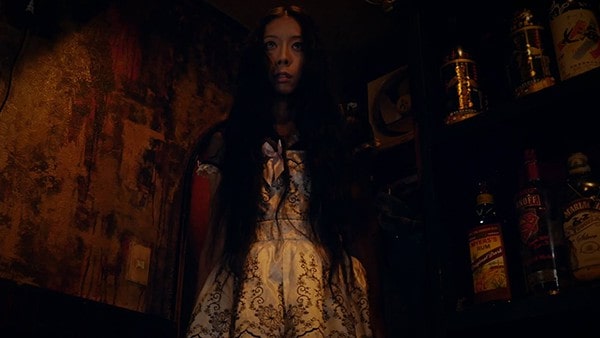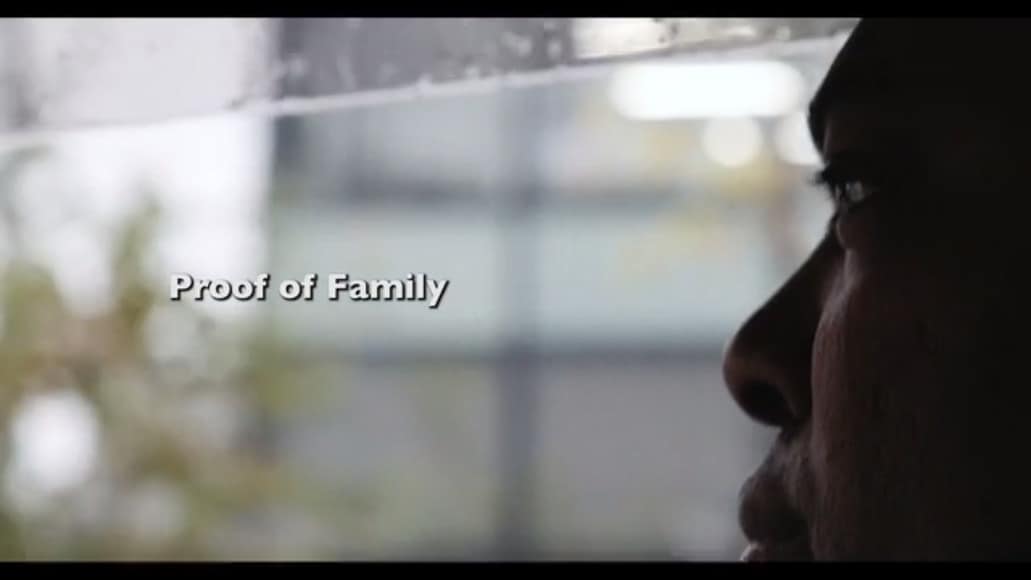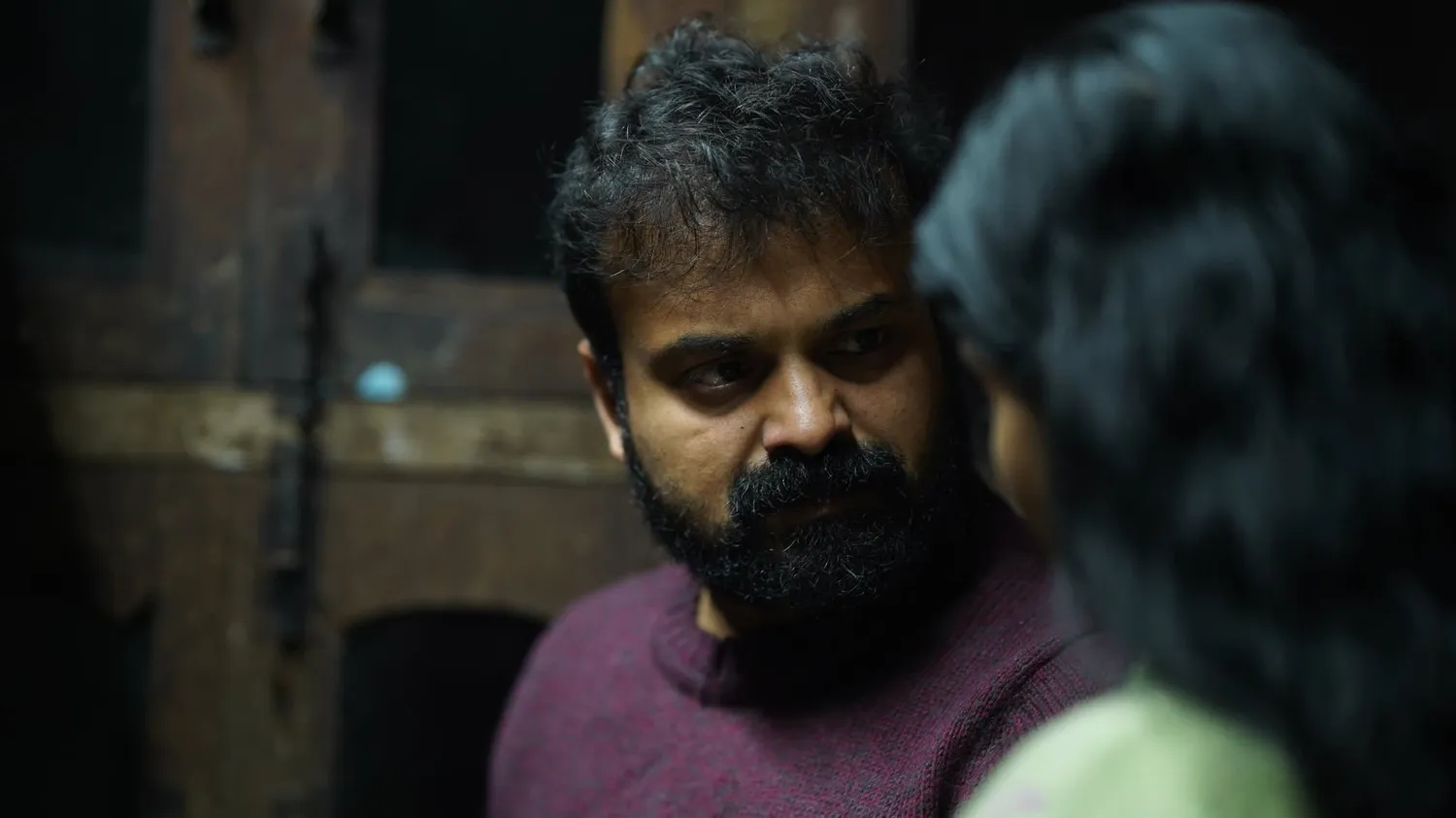Initially a 2006 stage play by award-winning playwright Haresh Sharma, Christopher Doyle-lensed “Fundamentally Happy” had a successful festival run in 2015 and 2016, screening in cinemas all over the world, before finding its way to MUBI Malaysia this year.
“Fundamentally Happy” is streaming on MUBI Malaysia
The film unfolds like a stage play, taking place in a single location, a two-storey terrace house, where the two protagonists, Eric, a 30-year-old social worker who has flown back to Singapore because of his father's death, and Habiba, an old neighbor he has not seen for years, meet. Initially, their discussion follows the rules of a reunion between two individuals who have cherished each other in the past, mostly through trips down memory lane. Soon, however, Eric's real purpose for visiting is revealed, having to do with Habiba's husband, Ismail, whom he claims had been molesting him for years when he was a child. Inevitably, the discussion becomes a clash.
Implementing a verbal cat-and-mouse game, where the roles actually change a number of times throughout the movie, Yuan Bin Lei and Bee Thiam Tan attempt to make a number of rather impactful comments, mostly about topics that are considered taboo in Singaporean and Islamic societies, but essentially all over the world. The fact that Habiba is obviously a Muslim, which becomes evident from the beginning, both from her appearance and when she tells Eric, between seriousness and humor, that now that he is old he cannot be alone with her in the house, provides an initial frame, from which the rest of the context derives.
The concept of child molesting takes center stage, with the directors highlighting the consequences for both the victims, and the families of the perpetrators, with Habiba's attitude, and particularly her denial of the events showcasing the latter in the most eloquent fashion. At the same time, that some people cannot hold themselves back, even more so in the rather strict Islamic setting, shows that child molesting is essentially a sickness, something that people cannot help themselves with, even though Eric's perception of the whole thing is completely different. In that regard, Eric's narration of the events emerges as rather shocking in its realism, also showing how difficult it is for the victims to eventually speak up and seek punishment for the perpetrators of such hideous crimes.
At the same time, however, and as the concept of memory and reality come to the fore, and Eric admits to some feelings he would never have wanted to, if not for Habiba's pressure, the whole approach to child molesting becomes blurred, to the point that, in a number of times, the victim is presented as not so innocent, in a comment that is questionable to say the least. That in the end, the directors do not seem to take a clear stance towards the issue, definitely dulls the impact the movie could have, despite the fact that this approach could also be interpreted under the prism of examining the topic from all angles, and not just pointing fingers.
The clash between the two protagonists emerging here is the best aspect of the movie, with the way Joshua Lim as Eric and Adibah Noor as Habiba clash but also change throughout the story being a true wonder to look at. Particularly the sole violent moment in the film will definitely stay in mind for some time.
Christopher Doyle's cinematography is also excellent as usual, with the difference in the way the spacious living room and the cramped kitchen are shot, mirroring the psychology of the two protagonists. Also of note is the way Ismail's impact is presented, despite his lack of physical presence, with the shots pointing from upstairs towards the ground floor and the occasional gaze of the two protagonists in the opposite direction, working excellently in that regard. The editing by the two directors is also quite good, with the passing in time communicated through the changes of topic in the discussions, while at 73 minutes, the movie definitely does not overextend its welcome.
Despite an approach that seems to avoid condemnation in any way, “Fundamentally Happy” emerges as a very brave film, with the two filmmakers touching upon subjects that are very rarely if ever mentioned in Indonesian cinema, and through an approach that is rather artful, both in terms of visuals and the presentation of the context.

















